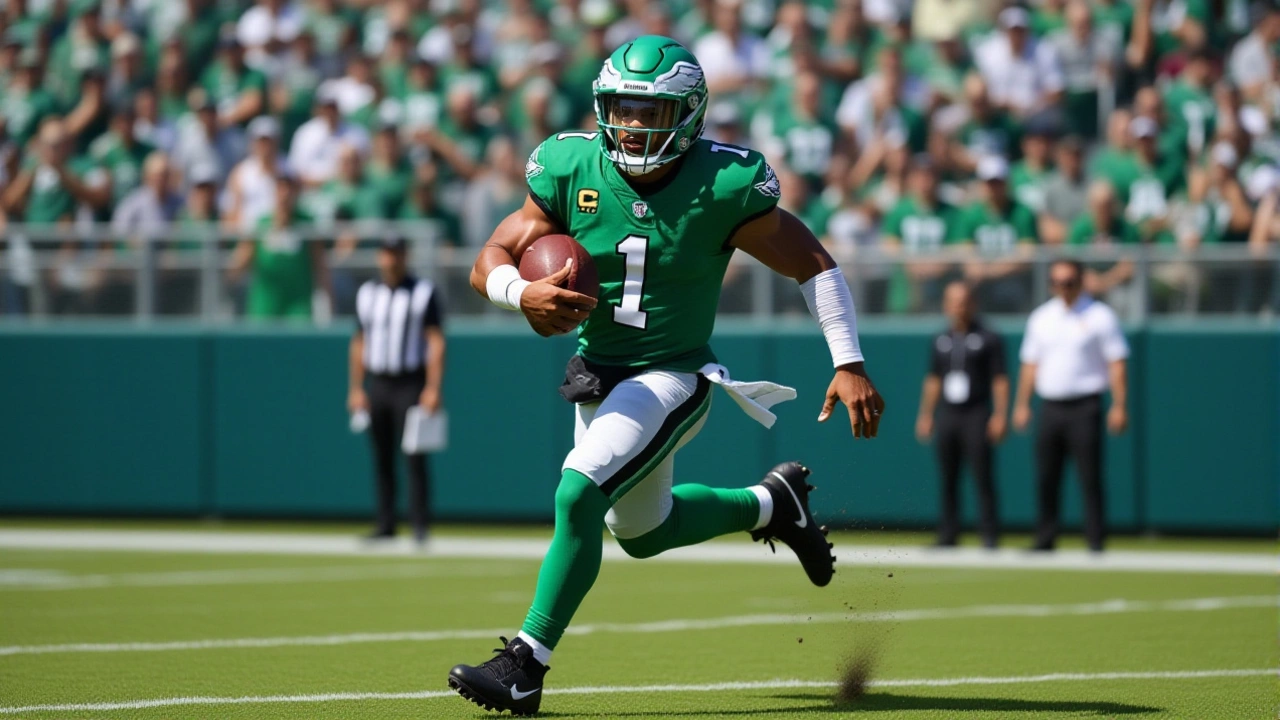TradeSmart Bank

Why Password Managers Are Essential for Online Security
Password managers generate strong, unique passwords for every account and auto-fill logins - stopping hackers before they even start. Stop reusing passwords and start securing your digital life today.

Escort France - A Fun and Stress-Free Way to Explore France with Local Guides
Discover how escorted tours in France offer a personal, authentic way to explore the country with knowledgeable local guides-no crowds, no scripts, just real connections and hidden gems.

Colts Beat Broncos 29-28 on Last-Second Field Goal in Thrilling Week 2 NFL Showdown
The Indianapolis Colts beat the Denver Broncos 29-28 on a last-second field goal, marking their first 2-0 start since 2009. Daniel Jones starred with 316 yards, Jonathan Taylor rushed for 165, and the Broncos fell to 1-1 under Sean Payton.

Chelsea vs. Barcelona: Underdogs at Home in Champions League Knockout Clash
Chelsea host Barcelona at Stamford Bridge on November 25, 2025, in a Champions League knockout clash where both teams are tied on points, but Chelsea are underdogs due to injuries and inconsistency, with midfield and defense under intense scrutiny.

Lions stun Giants 34-27 in OT behind Gibbs' 264-yard explosion at Ford Field
The Detroit Lions beat the New York Giants 34-27 in OT on Nov. 23, 2025, fueled by Jahmyr Gibbs’ 264-yard masterpiece and Aidan Hutchinson’s game-sealing sack at Ford Field, improving to 7-4 and reigniting their playoff hopes.

LaNorris Sellers Leads South Carolina to 51-7 Rout of Coastal Carolina
LaNorris Sellers threw and ran for four touchdowns as South Carolina routed Coastal Carolina 51-7 on November 22, 2025, ending a five-game skid and showcasing a dominant offensive performance at Williams-Brice Stadium.

2025 Concacaf Gold Cup Knockouts: Mexico vs Saudi Arabia, US vs Costa Rica Set for Star-Studded Quarterfinals
Mexico faces Saudi Arabia and the United States takes on Costa Rica in the 2025 Concacaf Gold Cup quarterfinals, setting up a dramatic path to the final at NRG Stadium on July 6. Historic guest appearance and high-stakes matchups define this year's tournament.

Guatemala Wins 3-1, But Suriname Advances to World Cup Play-Offs on Goal Difference
Guatemala beat Suriname 3-1 in World Cup qualifying, but Suriname advanced to the FIFA Play-Off Tournament on goal difference after a 93rd-minute own goal. Panama qualified directly, while Suriname’s miracle run continues.

Eagles Edge Packers 10-7 in Defensive Masterclass on Monday Night Football
The Philadelphia Eagles defeated the Green Bay Packers 10-7 in a defensive battle on Monday Night Football, holding Green Bay to just 261 total yards. Jalen Hurts and Saquon Barkley led the offense, while new acquisition Jaelan Phillips sparked the defense in a low-scoring thriller.

Freddie Freeman’s Walk-Off HR Ends 18-Inning Marathon as Dodgers Beat Blue Jays 6-5
Freddie Freeman hit a walk-off home run in the 18th inning to lift the Los Angeles Dodgers over the Toronto Blue Jays 6-5 in a 6-hour, 39-minute World Series marathon, tying the longest game in Fall Classic history.